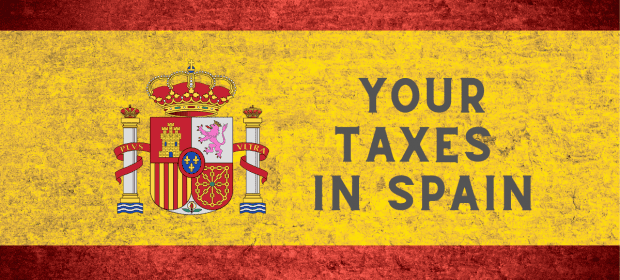Assurance Vie in France – In most countries, tax-efficient savings and investment schemes exist with the aim of encouraging people to save for the medium and long-term so they don’t become a burden on the state.
Tax efficient savings and investments in France
By Amanda Johnson
This article is published on: 21st March 2023

However, when we become resident in France the tax-efficiency that we enjoyed from our home schemes is usually lost. This is because, as a French resident, you are liable to French taxes on all your worldwide income and gains, except for anything that might be exempted by the terms of a Double Taxation Treaty.
Even if certain income is exempt from French taxes, it is usually the case that this exempt income must still be declared in France and will be included with your other income when calculating your French income tax liability. The fundamental point to note is that including such exempt income has the effect of increasing the rate at which other sources of income are taxed in France, including investment income.
In France, there are several tax-free accounts available for short-term savings such as:
- the Livret A, available to both residents and non-residents, in which you can deposit up to €22,950 and earn interest of 3%. No tax or social charges are applied
- the Livret Développement Durable, eligible to French resident taxpayers only for deposits up to €12,000, also earning interest of 3%
- the Livret Epargne Populaire, eligible to French resident taxpayers only, paying an extra 6.10% interest for deposits up to €7,700 if your income doesn’t exceed a certain threshold..
For medium to long-term investments (as opposed to savings), there is one product that stands head and shoulders above the rest and that is an Assurance Vie
What is an Assurance Vie?
An Assurance Vie (AV) is an insurance-based investment product. It can be as simple or as complicated as you wish to make it. Think of it as that old shoe-box that you keep your documents in, or maybe that fireproof metal cabinet for certificates and the like. Old and battered it may be, but an AV has some rather special properties:
- The investments that you place within your AV are never touched by French income tax or capital gains tax whilst they stay inside the AV
- The majority of investments are never subject to social charges whilst inside the AV. Be aware that this does not apply to Fonds en Euros, from which social charges are deducted annually
- The AV is never locked. You can take your money out whenever you like, unlike a pension which has age restrictions
- If you keep the AV going for at least eight years, you then qualify for a special income tax-free band on top of your normal allowances, together with low withholding tax rates
- If your aim is to leave your financial assets to your chosen heirs (not just the ones Napoleon thought you should leave them to), you can leave each individual beneficiary a large sum completely free of French inheritance tax
Millions of French people use the AV as their standard form of savings and investments and many billions of Euros are invested this way via French banks and insurance companies. In addition, there is a much smaller group of companies that are not French, but have designed French compliant AV products aimed specifically at the expatriate market in France. These companies are typically situated in well-regulated EU financial centres, such as Dublin and Luxembourg. Before choosing such a company, however, it is important to establish that the company has a French fiscal representative, to ensure that you receive the same tax and inheritance advantages as a French equivalent product.
Some of the advantages of an international AV policy compared to French policies are:
- It is possible to invest in currencies other than Euro, including Sterling and USD
- There is a larger range of investment possibilities available, providing access to leading investment management companies as well as capital guaranteed products and funds
- Documentation is in English, thus helping you to understand better the terms and conditions of the AV policy
- The AV policy is usually portable which is of benefit if moving around the EU since in many cases the policy can be endorsed for tax-efficiency in other EU countries
How does an Assurance Vie work?
Your single lump sum investment or regular premiums are paid to an insurance company, which then places the money with the investment manager(s) of your choice. These are usually unit- linked types of investments, for example in equity or bond funds, but can also be in deposits or special products on offer from various financial institutions. You can invest in any number of different funds or products and these are all collated together by the insurance company to form a collective bond, which is your AV policy.
If you have chosen your investments wisely (with the help of your financial adviser), over the long-term the value of units you hold in the funds is likely to increase and so too is the value of your AV policy. However, you must be fully aware of and comfortable with the amount of risk that you are taking, since with any type of unit linked investment your fund value can go down as well as up, as a reflection of what is happening in investment markets. Over the long-term, however, the effect of short-term market volatility will usually be reduced.
Can my capital be guaranteed through an Assurance Vie?
A common feature of the French AV is the possibility of investing in Fonds en Euros. This is a special type of fund designed to form a very cautious base to your total investment, since your capital, as well as any interest and year-end bonus added to it, is guaranteed. The fund invests mostly in government and corporate bonds, although there can also be a little exposure to equities and properties with the aim of enhancing returns. During the year, your capital will earn interest and by law the insurance company must allocate most of your share of the return of the fund to your account, in the form of a year-end bonus. The balance of the return of the fund is kept in the insurance company’s reserves, to smooth out future investment returns, for example in times of poor market investment performance.
Due to the nature of the guarantees with Fonds en Euros, the rate of return is typically low, but is usually better than the interest that you might earn from a bank deposit with immediate access. However, this type of fund is regarded by the tax authorities as being so secure that social charges are levied annually on the gain (rather than only at the time that you take a withdrawal as would be the case with other investments within the AV). This effectively reduces the rate of return over the long term. Through some international AV policies there is the possibility to invest in structured bank deposit offerings, where the investment return is linked to the stock market, but with the security of a capital guarantee.
How do I choose what to invest in inside my Assurance Vie?
You may have strong views on this yourself, or you may have no ideas at all, but in all cases it helps if you have a good financial adviser at hand. His or her job is to help you understand the whole concept of investment and to help you establish your attitude to investment risk. Sadly, there is no realistic chance of a meaningful return on your savings without accepting some degree of risk. We have also seen in recent years that even leaving your savings in a bank can be risky, whether this is because you do not earn a real rate of return or because the bank fails due to poor management.
Your adviser will show you different types of investment options, explain how they work, what their track records are and how much risk is involved. You make the final decision, but his or her help can be invaluable. When the investments have been made, there should be follow-up meetings to review the performance of your investments. Your adviser may well recommend some changes depending upon the evolution of your own circumstances, or perhaps because of fund performance, or may have interesting new funds to introduce to you.
It is also possible to use the services of a Discretionary Fund Manager, with whom you agree an investment mandate (based on your specific investment objectives and risk profile), who then manages your money on a discretionary basis to achieve your financial goals.

How is Assurance Vie taxed?
Only the gain element of any amount that you withdraw is liable to income tax and the rate of tax is determined by the date on which premiums are paid.
Premiums paid before 27th September 2017:
For premiums paid before 27th September 2017, the taxpayer has the option to be taxed at the progressive rates of the barème scale or the Prélèvement Forfaitaire Libératoire (PFL) rates, as follows:
- during the first 4 years at 35%
- between 4 years and 8 years at 15%
- post 8 years at 7.5%
- social charges at the rate of 17.2%* are payable in addition
Premiums paid from 27th September 2017:
The Prélèvement Forfaitaire Unique (PFU) – also known as the Flat Tax – was introduced in the Project de Loi de Finances 2018, published on 27th September 2017. From this date the PFU applies to the total amount of interest, dividends and capital gains on the sales of shares received by the taxpayer. It also applies to certain gains on withdrawals from assurance vie contracts.
The Flat Tax rate is 30%, made up as follows:
- a fixed rate of income tax of 12.8%; plus
- social charges at the rate of 17.2%*
For premiums to assurance vie contracts paid from 27th September 2017, the tax rate will vary according to the age of the contract, and for contracts older than eight years according to the ‘threshold’ amount of capital remaining in the contract as at 31st December of the year prior to the withdrawal being taken.
The threshold amount is €150,000 per individual person (across all assurance vie policies), which is determined by reference to the amount of the premiums invested, reduced by any capital already withdrawn, and not the value of the contract.
The threshold is not cumulative between persons and therefore couples who are taxed as a household cannot share in each other’s thresholds. Thus, one spouse may reach the threshold level whilst the other does not, for example where one has say €200,000 capital invested and the other only has €80,000 invested.
The PFU applies to assurance vie contracts of less than eight years regardless of the amount of the outstanding capital. Thus, the PFU rate of 30% replaces the pre-27th September 2017 rates detailed above.
Therefore, according to the age of the contract, the following tax rates apply:
- during the first eight years, the Flat Tax rate of 12.8%
- over eight years, 7.5% up to the threshold, plus 12.8% above the threshold
* A lower rate of social charges at 7.5% applies if you are resident in France and hold the EU S1 certificate, whereby you are covered by the health system of another EU or EEA country.
Insurers are obliged to deduct the tax of 12.8% or 7.5% (depending on the duration of the contract) plus the social charges. Subsequently, for contracts older than eight years where the taxpayer has exceeded the threshold, any additional tax due is charged through the taxpayer’s annual declaration.
Tax-free allowance on all policies after the eight year holding period:
In addition to this, and in all cases regardless of the ‘premium paid’ date, after holding a policy for eight years a single taxpayer receives an income tax allowance of €4,600 per annum against the gain element of any withdrawals during the tax year. For a couple who are subject to joint taxation, this is increased to €9,200. Hence, providing that the gain element of total withdrawals made during the year does not exceed the allowance, then there is no income tax to pay. This might not sound a lot, but it is a very useful allowance, as can be seen in the following simple example.
Peter and Pam have an AV policy, which they start in January 2018 with an investment of €100,000. They do not make any withdrawals on this investment for the next eight years, and it is then worth €160,000 (hypothetical). A new car is then needed, and they need some cash to help pay for it, so they withdraw €20,000 from their AV. In this case €60,000 of their AV worth €160,000 is profit, and that is 37.5% of the total, so it is logical that the gain element of their withdrawal is €7,500 and €12,500 is their original capital.
The insurance company (assurance vie provider) will deduct income tax and social charges on the gain element when they pay out the withdrawal. Since the policy is over eight years old however, and they are subject to joint taxation, Peter and Pam have a tax-free allowance of €9,200. The gain will then be declared on their next tax return and they will receive a rebate of the income tax charged.
Does an Assurance Vie have other advantages?
Without doubt, the AV is effective for inheritance planning. There are age restrictions, but via an AV policy you can leave up to €152,500 to any number of beneficiaries, each of whom will pay no succession tax. In addition, AV policies are exempt from the strict French succession rules. You can leave your money to whomever you wish. Should you wish to leave more than this amount to any one beneficiary, they will pay tax at a rate of 20% on the next €700,000, and then at 31.25% above that.
Is an Assurance Vie right for me?
An Assurance Vie is a valuable asset, helping you to shelter your capital and income from unnecessary taxation. It can provide protection for you during your lifetime and protection for your loved ones when you are gone. However, everyone’s circumstances are different and it is essential that you take professional financial advice before investing into this type of product.
Tax efficient savings in Portugal
By Mark Quinn
This article is published on: 22nd December 2021

If you have arrived in Portugal from the UK there is a hope, or perhaps expectation, that there will be savings options similar to an ISA and other tax efficient investments.
Portugal does not have an ISA system but there is a similar investment, sometimes referred to as the “tax efficient, Portuguese compliant bond”. It is tax free whilst invested and has a very beneficial low taxation basis, especially if you require income from your investment.
The two big advantages with this structure are that there is no limit to the amount you can invest and it is portable to most other countries if you decided to move in the future.
There are many investment and currency options, so it is a simple and effective way of building a Portuguese compliant tax efficient savings structure to meet your personal objectives and needs.
Even if you have moved to Portugal to just take advantage of NHR (Non Habitual Residence status), and wish to return to your home country in the future, these structures can provide an incredible planning opportunity.
For example, if you return to the UK and the appropriate restructuring advice was to surrender the investment, the tax due on surrender would be proportional to the amount of time you have been in the UK. So, if you were non-UK resident for the whole period of ownership, then no tax is payable. If you were non-UK resident for 8 out of 10 years of ownership, the tax will only be calculated on the 2 year period of UK residence meaning you would benefit from an 80% tax saving!
For more information on the tax efficient, Portuguese compliant bonds, please contact us.
Tax Efficient Investments Malta
By Craig Welsh
This article is published on: 20th October 2021

This week, Craig Welsh celebrates 15 years as a Spectrum adviser.
Craig started out in the Netherlands, still looks after his clients there, and has now opened a Spectrum branch in Malta.
This short clip tells you a bit more about what you can expect from your Spectrum adviser.
Whether it is Brexit concerns, how to get a better return on your savings, QROPS / SIPP pension advice, or general retirement planning, The Spectrum IFA Group is there to assist expats in Europe.
Moving on from Brexit
Brexit created a number of well-documented issues for expatriates living in the EU.
Financial planning and wealth management were impacted heavily as the Withdrawal Agreement excluded financial services and specifically the passporting of advisory licences between the UK and EU. This means that many UK based advisers and institutions are no longer able to engage with clients living in the EU.
The Spectrum IFA Group is licensed across the entire EEA and can ensure that your finances are ‘Brexit-proof’, through access to secure, locally authorised, tax-efficient investment solutions.
In countries such as Malta, you have access to many flexible investment options backed by some of the UK’s largest and most well known financial institutions.
These products, issued from Dublin or Luxembourg, are both EU regulated and highly tax efficient. Tax efficient products, designed for expatriates, are available to Maltese residents.
As a result, you can still invest with companies whose names you know and trust, whilst ensuring compliance and tax-efficiency in the country you now call home.
The tax and legal systems in France
By Amanda Johnson
This article is published on: 23rd July 2021

There are lots of reasons to love France …
… but the legal and tax systems aren’t high on that list!
How to manage wealth effectively, whilst minimizing administration, requires an experienced adviser with access to solutions purposefully built for the French marketplace, with due regard for t he local taxation and legal systems.
Because knowledge allows us to make better decisions, we invite you to watch the recent webinar with Quilter International.
The webinar considers financial planning options designed to help you keep more of your wealth for longer, ever mindful of the crossover with other countries, such as the UK.
As one of the leading providers of wealth management solutions, Quilter International works primarily with expatriates in around 40 countries, including France. Their speaker, David Denton, is a Fellow of the Personal Finance Society and Trust and Estate Practitioner, and has spent almost three decades in wealth management, training professional and lay audiences world-wide, on the subject of wealth preservation.
I’m moving to Spain – When should I take financial advice?
By David Hattersley
This article is published on: 17th March 2021
Brexit removed the previous rules pertaining to “Freedom of movement, goods and services within the EU”. Those who now wish to move to Spain from the UK, making it their home as retirees or working here, newer and tougher rules apply.
Distance working has added a new dynamic, in particular for those in the technology sector who see that this is as an opportunity to work and live in a nicer environment. Speaking to a qualified financial adviser who is regulated here,in Spain is sometimes an afterthought . However, talking to an adviser before you embark on the journey can help avoid some of the issues which expatriates can find themselves encountering. Financial planning is complex, whichever new country one moves to, so a brief summary can help prepare for the future “devil in the detail” elements. Forewarned is forearmed and helps avoid basic pitfalls.
It makes sense to “disinvest” all UK held assets prior to becoming Spanish Tax resident. Timing and deferral is the key to planning a strategy. Note that due to Brexit, UK advisers are no longer allowed to offer continuity of advice Spain for those that become tax resident in Spain.
There are a number of rules regarding Spanish tax residence, which are briefly detailed below. You will be deemed tax resident in Spain in any one of the following cases:
1. Number days in Spain not to exceed 183 days and may include time spent in any EU member country,
2. Centre of Economic interest i.e. source of earnings is in Spain,
3. Spouse and minor children living in Spain.
With regards to your assets, without going into too much detail, the following will apply.
UK property: Disposal once tax resident will be subject to Spanish capital gains tax, even if it was one’s primary UK residence. If retained it will be subject to reporting on Modello 720, a record listing overseas assets. A 20% increase in value will mean a new Modello 720 report. Income derived from letting the property will be subject to Spanish “investment” tax.
UK Pensions: A Pension Comencement Lump Sum is tax free in the UK, it is liable to tax in Spain. So if nearing 55 wait till you take it and then become Spanish Tax resident.
ISAs: An ISA offers tax free growth or income in the UK. They are not tax free in Spain, but there is a Spanish equivalent.
Unit Trust, Shares, Investment & Insurance Bonds, NSI bonds etc: There are some tax breaks in UK but none in Spain.
Inheritance Tax: The UK rules apply to the residual estate whereas Spain applies it to the beneficiary. There is a strong possibility of being taxed twice as estate rules & beneficiary rules are not covered by double taxation agreements.Based on “domicile” there is a different law for bequests & inheritance in Spain. Also, unlike the UK, it has a the variety of laws for each autonomous area,affecting in particular the potential impact of Spanish succession tax. It makes sense to deal with a regulated adviser who is based in or near to an autonomous area you will be living in e.g. Madrid ,Andalucia, Murcia, Valencia.
Having a “ partner “ relationship as opposed to being married, brings its financial own risks in Spain, and arrangements must be considered.
Spanish Property: Some people come to Spain with plans of using their new Spanish property to retire to now or eventually. If it is the latter, the property maybe used to produce rental income either via summer rentals or long term rentals, but in this case there will be tax considerations.
Investing an hour of two of your time before you make the move to Spain can provide peace of mind and financial comfort when planning your new adventure. I can provide “Your guide to tax in Spain” that goes into greater detail. Whether you want to send the guide or speak to me directly, please call or email me on the contacts below & I will be glad to help you. We do not charge for reviews, reports or recommendations we provide.
A Spanish regulated adviser can ensure you are financially prepared for your move, in terms of any investments, savings and taxes which can become due on both income and windfalls you may be expecting after your move.
Please note, we are not accountants or lawyers, but we do work hand in hand with these professionals, and can be the “first port of call”.
The results are in…
By Chris Webb
This article is published on: 10th June 2020


I trust you are all safe and well and enjoying the additional bit of freedom that moving into Phase 1 has afforded us herein Spain. By the time you read this there is every chance we are into Phase 2 allowing even more freedom. It’s been a long haul for Madrid to get there and there are mixed feelings about how long it has taken…
Personally, I´d rather be safe than sorry, so whilst there have been frustrating times over the last few months, it is probably for the best. Recently I sent a survey out to my clients, who are based all over the community of Madrid. The survey was twofold:
Secondly, being in lockdown has given us all the time and opportunity to evaluate our personal situations. To address administrative tasks we had put on the back burner and to look at all aspects of our financial wellbeing, whether that be assessing emergency cash reserves, job security or even making sure an up to date will was in place.
The response to my survey was fantastic with many responses. Some just answered the questions but the majority also wrote additional comments, which gave a greater insight into their situation. It was interesting for me to read the results and compare the answers to how my family have felt and what we had looked at changing or updating.
I´d like to share some of the results from the survey, but I won’t detail all the questions as this Ezine would be never ending.
It might be beneficial for you to compare the data with your own situation or feelings.
1. Only 30% felt that lockdown was a struggle; the vast majority were not concerned by the restrictions.
2. 80% were comfortable with the transition to online communication, whether that be email or video calling.
3. 100% were concerned about their investments – completely natural when you were watching the fall out on the news.
4. 42% were concerned for their jobs.
5. 95% had sufficient emergency cash reserves to see them through – something we always encourage when dealing with our clients.
6. 50% had excess cash reserves sitting idle in the bank.
7. 62% believed that NOW was a great time to get invested and put more money into the markets. Of that number 55% proceeded and bought in at the discounted prices available.
8. 57% had an up to date will in place. Some admitting to doing it recently after my article titled “The Folder”.
9. 80% felt that their insurance policies were sufficient for their situation; however 40% of these people have requested further information and alternative quotes.
The results made for interesting reading and it was great to see that a lot of people had reviewed things and were keen to look at alternative options.
As a company we have a huge network of 3rd party companies that can assist our clients with all the points raised in the survey.
In Madrid I can recommend teams of lawyers who will offer a free initial
consultation and discounted rates, providing they come from me as a direct referral. This is great for anybody that needs to review their will – you can have the initial conversation at no cost and then pay for the will upon completion.I can recommend teams of accountants or gestors to assist with tax returns, inheritance, and other administrative issues.
During lockdown I also set up a collaboration with an expat insurance broker, which allows us to assist with health insurance, life insurance, car insurance, house insurance and more. The great thing about this relationship is that ALL quotations and policy documentation are in English. Whilst most of you will speak and understand Spanish perfectly well, there are times when something is easier “to get” when it’s in English.
If you want to review your insurances, or just obtain alternative quotes to compare with what you already have, get in touch – there is no charge for a quotation.
Do not delay reviewing your will, insurances, or investments.
PS. If you did not receive the survey and want to complete it, send me an email and I´d be happy to share it with you.
There’s only two things you can be certain of in life…
By Katriona Murray-Platon
This article is published on: 2nd June 2020
In France they have an expression “En mai fait ce qui te plait” which translated means that in May you do as you please. Well clearly this year we haven’t been able to do exactly as we please but we have been allowed a bit more freedom since the end of lockdown on 11th May. I haven’t yet felt the need to take advantage of this new found liberty, but as the children returned to school under acceptable conditions at the end of last week our work/home/school routine is set to change.
May is also tax season. Whilst you can get online to do your tax return in April, I personally have always preferred to do it on 1st May and during the month of May I notice an increase in client enquiries. Even though, in my previous role as a tax adviser, I used to do several hundred tax returns for our English speaking clients, I still find myself getting nervous when I do our annual tax return. There are so many bits of information that need to be assembled and I want to make sure that I have all the income, expenses and tax reductions properly entered before I finally press send.
May is a good time to think about not only your tax but also your taxable income. When I worked in the accountancy firm, my colleagues and I didn’t have time to think about whether a client was paying TOO much tax or not. We just took the information provided and entered the figures in the boxes. When I joined Spectrum I realised that, as a financial adviser, I could take the time to sit down and do a full financial review with my clients to look into whether it made sense for them to be paying so much tax. One thing that comes to mind is UK ISAs and investment portfolios.
They are not tax efficient in France and a real headache for anyone or their tax adviser to have to work out. It took hours of entering in each dividend, interest and capital gain. You can still own a well diversified, multi asset portfolio within an assurance vie wrapper and save time and money when it comes to completing your tax return.
If you haven’t done your tax return then there is still time to do so. You can get our free tax guide HERE. In 2020, all households must do their tax returns online if they have internet access at home. If not they can submit a paper return. You have until 4th June if your live in Departments 1-19 or if you are non-resident, 8th June for Departments 20-54 and 11th June for Departments 55 to 974/976.
As regards the markets, global share prices have recovered strongly over recent weeks, with many investors encouraged by central bank interventions, including ongoing financial support and stimulus for individuals and companies. The prospect of successful vaccine development and the easing of lockdown restrictions have also fuelled optimism. Some of this investor enthusiasm, and expectations of a rapid economic recovery, may well be misplaced, but short term stock market direction is of course impossible to forecast.
There is almost certainly more economic difficulty ahead, but there will in time be a recovery (the only question is timing) and, as always, it is important to take the long term view. For now, our priority should be to ensure that our investments and pensions continue to be well managed regardless of the difficult economic circumstances.
In the words of Julian Chillingworth, Chief Investment Officer of Rathbones, one of Spectrum’s approved multi-asset fund managers,
“We think it’s important that investors concentrate on understanding which businesses can survive this current crisis and quickly return to generating meaningful profits and paying dividends. This is where we are concentrating our research efforts, generating ideas for our investment managers to use in portfolios as we work our way through this crisis.”
May has been a busy month with Zoom meetings with colleagues, friends and family and telephone meetings with clients and prospects. However as lockdown has now ended and my children are back at school (for at least two days a week), I will be tentatively making a few face to face meetings in June if my clients so wish whilst taking all the necessary protection measures.
If you want to speak to me about any financial matters or you know of anyone who, having moved to France, would benefit from learning more about managing finances in France, please do get in touch.




